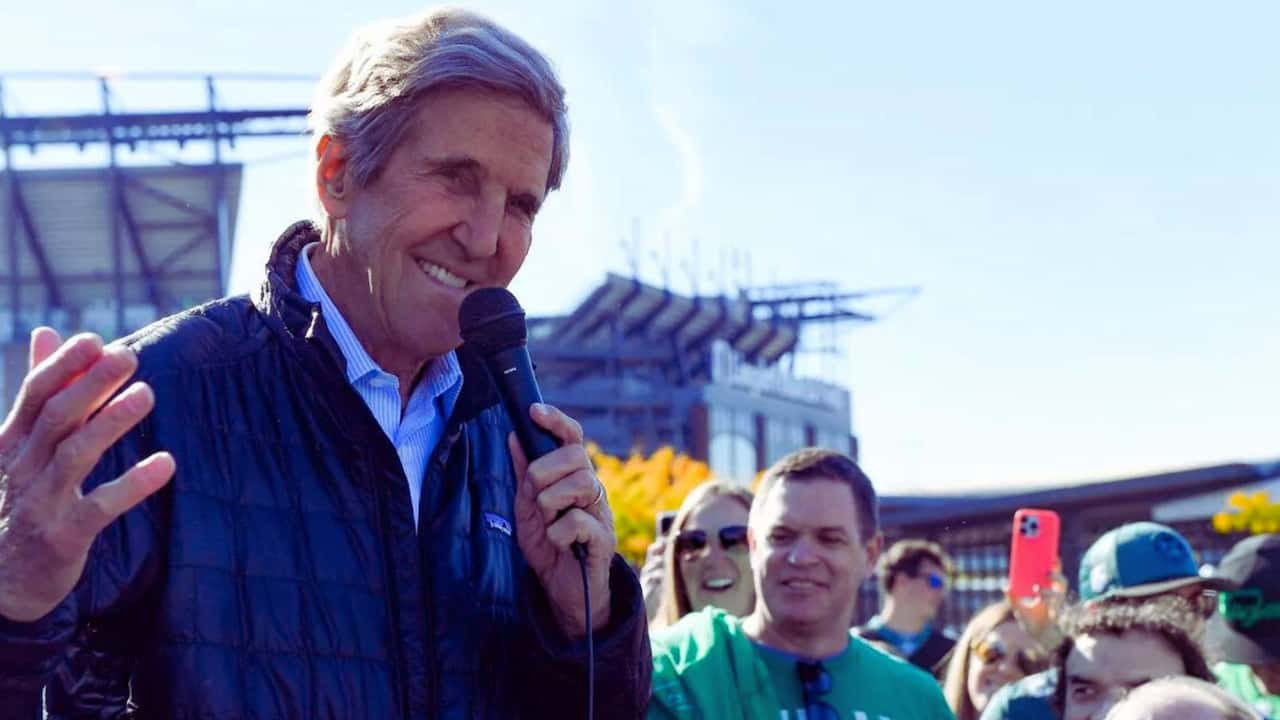Kerry Warns of Climate Emergency, Urges Africans to Choose “Right” Electricity
In a recent series of statements, John Kerry, the U.S. Special Presidential Envoy for Climate, has made headlines with his strong views on climate change and energy policy. At the Harvard Kennedy School Institute of Politics, Kerry emphasized the urgent need to address what he termed a “climate emergency.”
He suggested that Africans without access to electricity should focus on adopting “the right kinds of electricity,” implying a shift towards renewable energy sources. Moreover, he advocated for U.S. assistance in making these energy solutions affordable for African nations.
Kerry’s comments reflect a broader agenda to encourage global cooperation in tackling climate issues. He highlighted the importance of recognizing the climate crisis as a significant transitional challenge that affects the entire planet. Kerry believes that declaring a climate emergency will prompt necessary behavioral changes worldwide.
Climate Emergency: A Global Call to Action
Kerry’s remarks come at a critical time when climate change is increasingly recognized as a pressing global issue. He warned that the U.S. is “on the brink” of declaring a climate emergency, underscoring the need for immediate action.
During his speech, he reiterated that no single country can tackle this crisis alone due to its vast scale and complexity. Conferences held worldwide, including recent ones in Baku and Azerbaijan, play a crucial role in fostering international collaboration.
Emphasizing science over politics, Kerry stated, “Everything I’ve ever done and advocated for in this is based on science. No politics.” He called for unity across political lines, noting that Republican and Democratic leaders have supported renewable energy initiatives despite political differences.
Economic Implications of Climate Action
Kerry also addressed the economic aspects of climate change, arguing that effective climate policies could benefit those affected by inflation. He pointed out that during Donald Trump’s presidency, many U.S. cities and states continued to support renewable energy initiatives despite the withdrawal from the Paris Agreement. This resilience demonstrates the growing recognition of renewable energy’s economic advantages.
He highlighted that by the end of Trump’s term, 75% of new electricity in the U.S. was renewable. This shift indicates a market-driven transition towards sustainable energy sources. Kerry assured that this trend is irreversible, as industries have already invested heavily in retooling for cleaner technologies.
A Vision for Energy Transition
Kerry’s vision extends beyond immediate policy changes; he sees a future where traditional energy sectors evolve into renewable industries. He mentioned geothermal energy as an example of oil and gas companies transitioning due to similar extraction methods.
“Eighty percent of workers today in geothermal have come from the oil and gas industry,” Kerry noted, illustrating how existing expertise can be leveraged for sustainable development.
In conclusion, John Kerry’s recent statements underscore his commitment to addressing climate change through international cooperation and economic transformation.
By advocating for renewable energy adoption in Africa and emphasizing science-driven policies, Kerry aims to galvanize global efforts toward a sustainable future. His call to action reminds us that while challenges remain, opportunities for innovation and collaboration are abundant in the fight against climate change.
